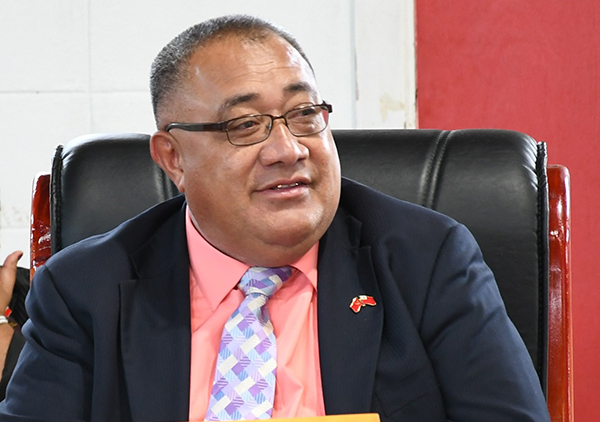Commentary – The recent exchange in Tonga’s Parliament, in which the Chair of the Whole House Committee, Lord Tu’ilakepa, suggested that Acting Prime Minister Taniela Fusimālohi should “wear women’s clothing” in the House, has sparked serious concerns about the use of language, the role of parliamentary leadership, and the need for cultural and gender sensitivity in public discourse.

What appeared to be an unfounded criticism by Lord Tu’ilakepa exposed what seems to be a lack of understanding of his role, a misconception of the traditional language lea heliaki, and an abuse of authority, threatening to eject any MP who attempted to correct him.
At the heart of this controversy is a comment that may breach the expected decorum of parliamentary debate while also invoking outdated and discriminatory gender stereotypes.
It reinforces the notion that femininity is inferior or laughable when applied to men, a sentiment rooted in sexism and misogyny. Such language is not only inappropriate in any professional setting but is especially troubling when voiced by someone in a position of authority within the legislature, like Tu’ilakepa.
Neutrality and Abuse of Authority
Parliamentary chairs are expected to uphold neutrality and foster respectful debate. Lord Tu’ilakepa’s remarks, as reported, crossed the line from moderation into personal insult.
His comment was not only dismissive of the Acting Prime Minister’s rhetorical style—delivered through traditional lea heliaki—but also appeared to weaponise gender as a means of humiliation.
This undermines the dignity of the House and erodes public confidence in its leadership.
Police Minister Piveni Piukala’s intervention was timely and justified. By urging the Chair to ‘hide what was in his heart’ and warning that the public could see the remark as demeaning to the Acting Prime Minister, he highlighted the severity of the breach. Yet the Chair retaliated by threatening to eject him from the House.
His appeal for the Chair to return to a neutral, moderating role was a call to restore the integrity of parliamentary proceedings.
It is also important to recognise the cultural context in which this exchange occurred. Lea heliaki, or the use of figurative speech, is a respected form of oratory in Tongan culture.
Fusimālohi’s use of this rhetorical style to discuss national energy policy was not only appropriate but culturally resonant. To dismiss or mock this approach is to disregard a valued tradition of Tongan political and public discourse.
What is lea heliaki?
But what exactly does lea heliaki mean in Tongan? It is the equivalent of “figures of speech” in English—a classified type of language used to generate effect, enhance expression, or evoke emotion.
The commotion in Parliament on Thursday that led to Lord Tu’ilakepa’s outburst came after Acting Prime Minister Fusimālohi employed lea heliaki to highlight the government’s lack of planning in relation to Australia’s support for Tonga’s electricity energy sources.
Fusimālohi used the type of lea heliaki known in English as analogy, comparing the situation to an “arranged marriage” in which Australia was ready with the bridegroom, while Tonga had yet to provide the bride.
Analogies help us understand complex or abstract ideas by relating them to something simpler or more concrete. They are a powerful tool in writing, speech, and everyday conversation, making concepts more relatable and easier to grasp.
Since lea heliaki is an important form of language used in both formal and everyday communication, the criticisms from Lord Tu’ilakepa raise the question of whether he truly understands the very language that, as a noble of the King, he is culturally expected to uphold.
Gender Discrimination and Public Impact
The apparent use of gendered insults in Parliament sends a harmful message to the public. It perpetuates the idea that femininity is something to be mocked, and it risks alienating women, gender-diverse individuals, and others who do not conform to traditional gender norms.
In a modern democracy, such language has no place.
It is essential that all members of Parliament, especially those in leadership roles, model respectful and inclusive communication.
This incident should prompt serious reflection within Tonga’s Parliament. Upholding the dignity of the House requires more than adherence to rules—it demands a commitment to respect, cultural understanding, and gender equity.
The public deserves a Parliament that debates ideas vigorously but treats all members with dignity, regardless of gender or political affiliation.







